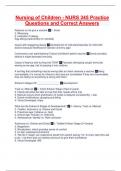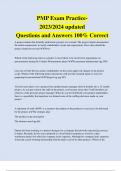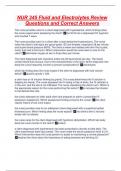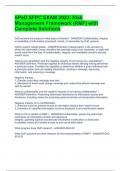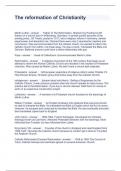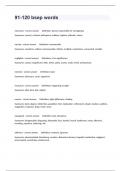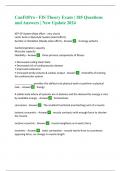Exam (elaborations)
Nursing of Children - NURS 345 Practice Questions and Correct Answers
- Course
- Institution
Reasons to not give a vaccine 1. Fever 2. Wheezing 3. Indication of allergy Egg allergy [specifically for varicella] Issues with staggering doses Development of mistrust/stress/fear for child with doctors because likelihood of injection at every appt Controversy over administering Tylenol and Mot...
[Show more]
